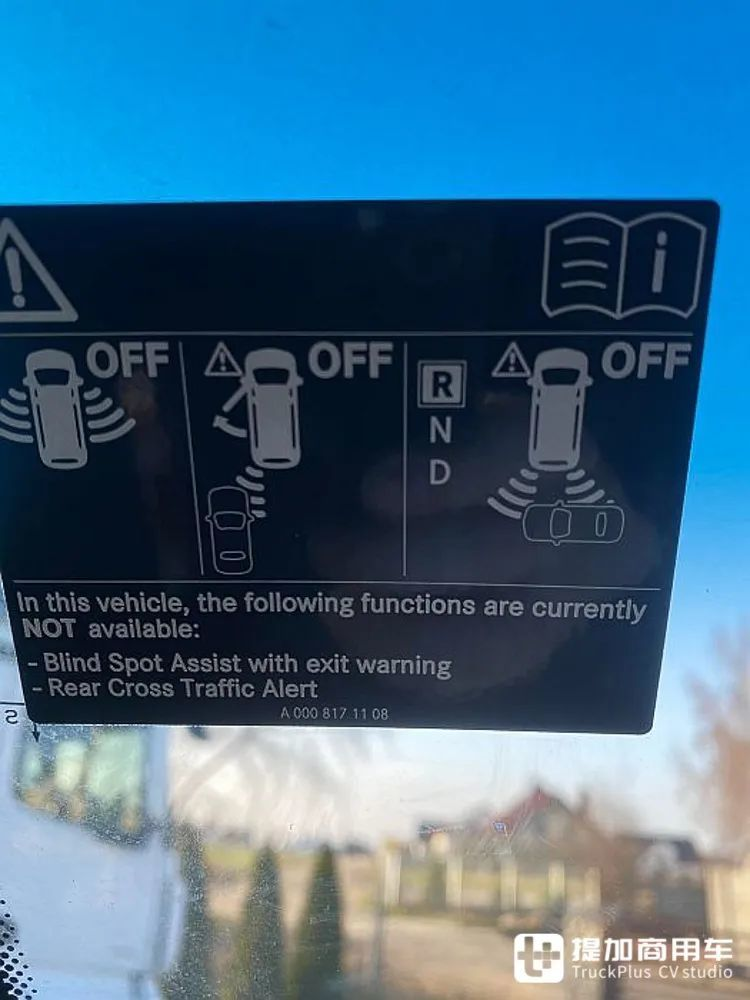The European transport industry has not had a good time recently. Fuel price hikes, driver shortages, supply chain turmoil, natural gas supply cuts... These problems have been deeply buried since the beginning of the epidemic, like a ticking time bomb. With the changes in the world situation such as the Russia-Ukraine conflict, these problems have become more and more dangerous. It is no exaggeration to say that March 2022 will not have the warmth of spring for the European transportation industry, but only an endless cold winter.
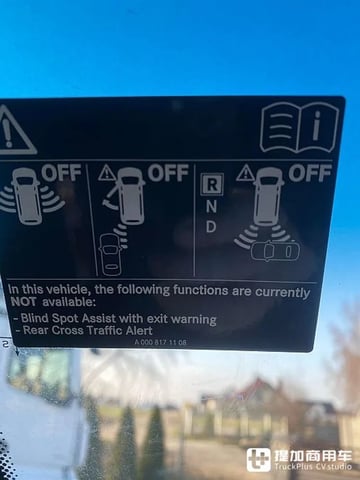
The first and most obvious problem is the supply chain problem. We all know that the global automotive chip industry is not optimistic, and it is difficult to supply enough chips for in-vehicle intelligent systems. For example, the Mercedes-Benz Sprinter in the picture above, it was ordered by a Polish driver, not long after he picked up the car. On its front windshield is a sticker that reads: Safety features such as the vehicle's blind-spot detection system are currently unavailable. According to the driver, the Mercedes-Benz 4S store did not install the corresponding radar and computer system, but reserved a corresponding location, which can be installed back after the supply chain problems are alleviated in the later stage.
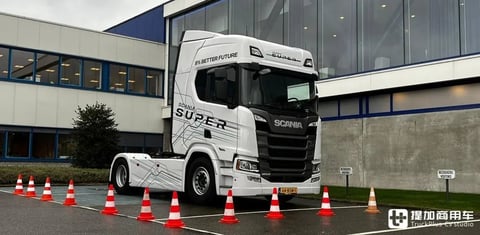
In mid-March, Scania's parts logistics company said at a press conference: Scania will stop accepting orders for diesel trucks for up to 6 months due to supply chain problems. This means that drivers will not be able to order new Scania diesel trucks until mid-September. However, the Scania plant will not stop running and will continue to produce trucks to deal with the backlog of orders. In addition, orders for electric trucks are not affected. Scania said the purchase price of the components used in the truck is highly uncertain and the delivery time is long. In addition to production and other processes, a truck may wait as long as 20 months from ordering to picking up the truck! Due to factors such as the Ukraine crisis, high oil prices, driver strikes, etc., it is almost impossible to give an exact price and an exact delivery schedule. Therefore, Scania had no choice but to stop accepting new orders.
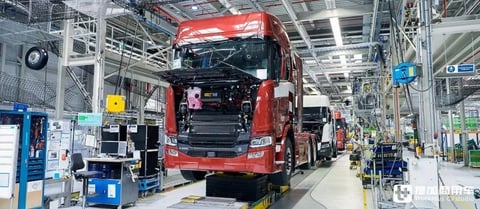
In 2021, Scania's sales results are very gratifying. Even though Scania experienced two production shutdowns in 2021 caused by semiconductor supply shortages, it delivered tens of thousands of trucks. In the European market, Scania's deliveries accounted for 20.3% of the total deliveries of heavy trucks over 16 tons. Still, the shadow of a semiconductor supply shortage lingers. At present, although Scania is still producing trucks, the production capacity has been compressed by more than 30%. Scania hopes to deliver more existing orders and find a solution to the semiconductor shortage by the end of this year.
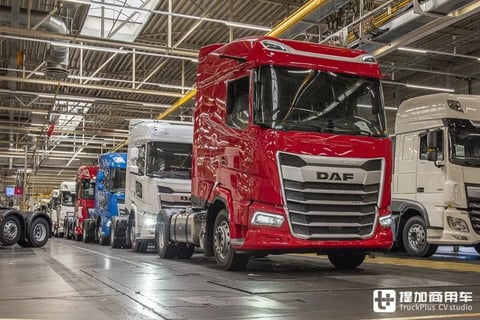
Other brands continue to operate and take orders, but have more or less cited unstable lead times and potential price changes. A more special example is the DAF truck in the Netherlands. On March 28, the CEO of DAF mentioned in an interview with the Dutch financial magazine Eindhovens Dagblad: DAF has too many reserve orders, and it is still increasing. Chip shortages and parts shortages are plaguing Duff, but with team-wide collaboration, they have the confidence to grow and deliver more orders. Duff will increase truck production from 220 per day to more than 240 per day in order to deal with the backlog as quickly as possible.
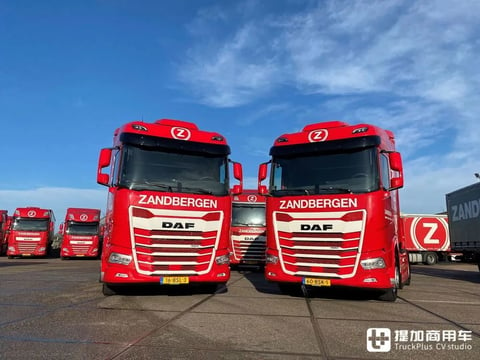
However, it also depends on the model. The current market turmoil is far beyond the reach of truck makers. Due to the shortage of semiconductors, the models currently delivered by DAF basically do not have electronic rearview mirror systems, but use temporarily installed optical rearview mirror systems, which will be replaced with electronic rearview mirrors after the supply chain problems are alleviated in the later stage. If the orderer insists on opting for the electronic mirror system, the truck will be produced and then parked in the parking lot, waiting for the electronic mirror to be installed.
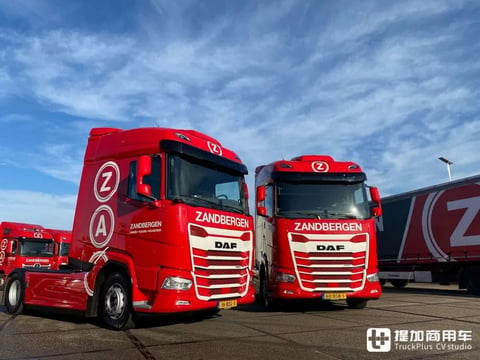
For example, these two DAF XG tractors delivered to ZANDBERGEN TRANSPORT. The company has optional electronic rear-view mirrors and a blind-spot camera system, but Duff is currently unable to provide electronic rear-view mirrors, so a transitional optical rear-view mirror system is used. However, the corner blind spot camera system was retained and installed normally.
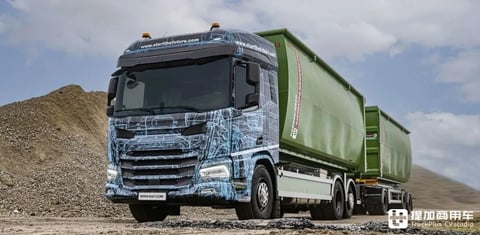
DAF is also intensively testing a new generation of medium trucks to replace the original DAF CF series. According to various speculations, this new model is expected to be named DAF XD, and it will be released and put into production in the middle or end of this year. According to Duff's expectation, due to the advanced nature of this model, they will receive a lot of related orders.
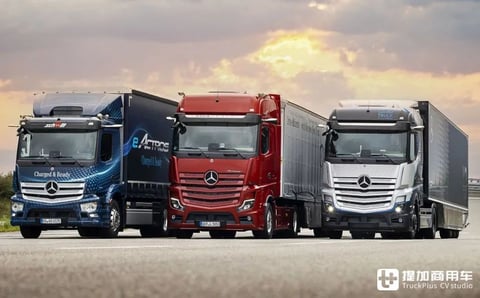
The only one who had the last laugh was Daimler Trucks. Daimler Truck Group has a big business, and its business spans dozens of brands around the world. On March 26, Martin Daum, President of Daimler Truck Group, said in an interview with ETM magazine: "Whether it is the epidemic or the war in Ukraine, There will be no negative impact on the development of the truck market. Even very high fuel prices do not have any obstacles. For example, the growing number of customers for trucks and the current demand even outstrips the production capacity, which is shown.” Expected 2022 In 2020, Daimler will deliver between 500,000 and 520,000 trucks globally, an increase of more than 10 percent from 2021. Moreover, this number of deliveries depends only on factory capacity, not on orders. Daimler has so many orders now that orders for the new Daimler-branded trucks may not be available until 2023. However, the models paid by the new traffic are more or less like DAF, and some electronic system parts are missing, just like the simplicity we mentioned at the beginning.
In the interview, he also mentioned sales in the Russian market and the Ukrainian market. Daimler has stopped selling trucks in both countries because of the conflict. However, the impact on the company was modest, with the two markets combined making up just 1% of total global sales.
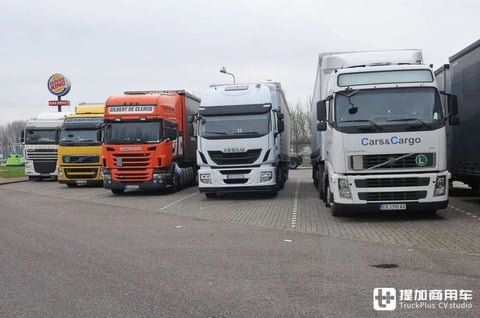
As of now, MAN, Volvo, Renault, and Iveco have not expressed their opinions. However, according to the actual operation, these companies have also been affected more or less. When to take action and what action to take? These are all yet to be seen. To be sure, the spring of 2022 will not recover like in previous years, and the long night has just begun. If there are any latest developments, Tijia Commercial Vehicle Network will also bring you the information as soon as possible. Thanks for reading this article!
Key words:Cab pump,cab cylinder,european truck parts.

